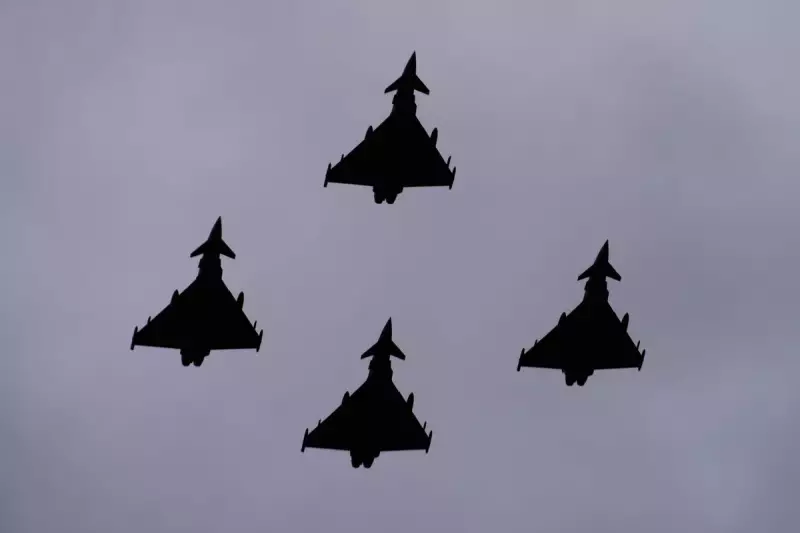
In a serious escalation of military tensions, two Russian Su-30 fighter jets illegally crossed into NATO airspace near Lithuania on Friday, forcing the alliance to scramble German fighter jets in a rapid response interception.
The incident occurred over the Baltic Sea region, which has become a flashpoint for NATO-Russian military encounters. According to NATO officials, the Russian aircraft entered sovereign airspace without authorization, posing a direct challenge to alliance security.
Swift NATO Response
German Air Force Eurofighter Typhoons were immediately deployed from the NATO Baltic Air Policing mission to intercept and monitor the Russian aircraft. The quick reaction demonstrated NATO's readiness to defend its airspace amid growing concerns about Russian military assertiveness.
A NATO spokesperson confirmed: "Two Russian Su-30 fighter aircraft entered NATO airspace near Lithuania. German Air Force Eurofighters scrambled to intercept the Russian aircraft, which subsequently exited NATO airspace."
Growing Baltic Tensions
This incident represents the latest in a series of provocative Russian military actions in the Baltic region. The area has seen increased military activity since Russia's full-scale invasion of Ukraine, with NATO significantly bolstering its eastern flank defences.
The airspace violation comes at a particularly sensitive time, as NATO continues to strengthen its presence in the Baltic states. Lithuania, which borders the Russian exclave of Kaliningrad, has been at the forefront of calls for enhanced NATO protection.
Security Implications
Military analysts suggest this incident highlights several critical concerns:
- The persistent threat of Russian military provocations in NATO territory
- The importance of rapid response capabilities in the Baltic region
- Growing tensions between Russia and the NATO alliance
- The need for continued vigilance along NATO's eastern flank
This airspace breach follows similar incidents in recent months, raising questions about Russia's strategic intentions in the region and testing NATO's collective defence mechanisms.
International Reaction
The incident has drawn sharp criticism from Western officials, who view such actions as deliberate provocations that could potentially lead to dangerous miscalculations. The Lithuanian Ministry of Defence has been closely monitoring the situation and coordinating with NATO partners.
Security experts warn that these types of incidents, while not uncommon, carry significant risks of escalation, particularly given the current heightened state of East-West relations following Russia's ongoing war in Ukraine.
NATO has maintained that it will continue to monitor Russian military activity closely and respond decisively to any further violations of alliance airspace.





